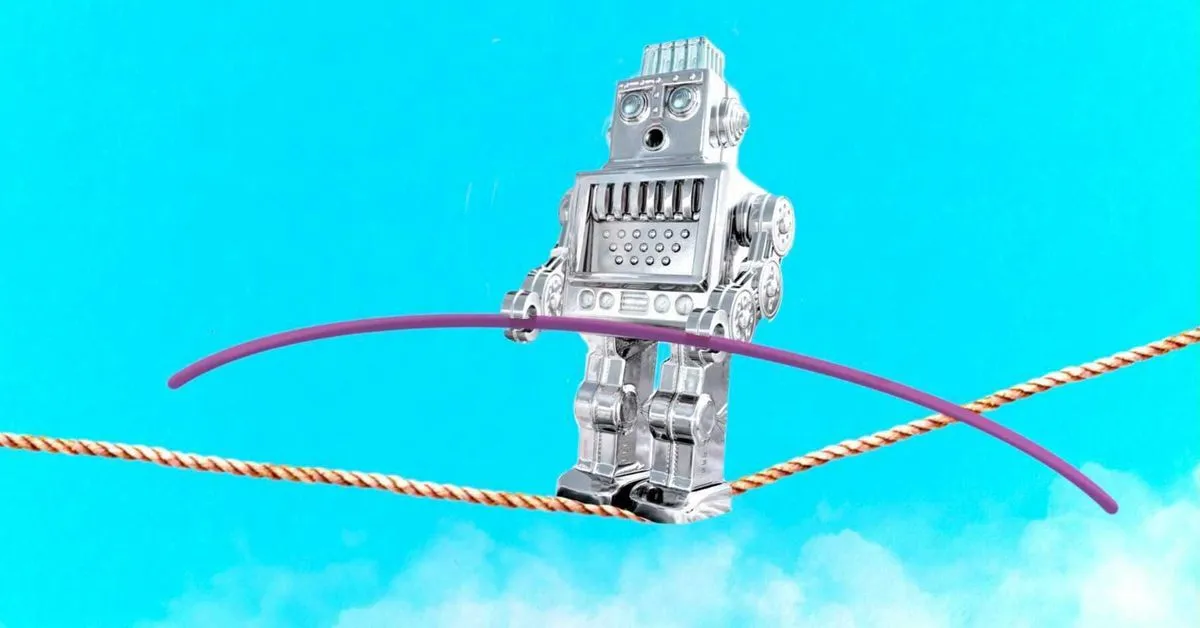As Michael would surely agree, there are no real days off in crypto, said David Z. Morris, filling in for Michael Casey to talk about so-called artificial intelligence, the threats it poses to the future – and how crypto could help mitigate them. The same problem lay at the very origins of Bitcoin, he continued.
Neil Clarke, founder and editor of the top-tier science fiction magazine Clarkesworld, has become a canary in the coal mine of A.I. run amok. The rise of ChatGPT has inundated these journals with a flood of fake GPT-generated story submissions, a plague so severe Clarkesworld was forced to temporarily pause submissions this February, threatening the work and livelihoods of real authors.
We have an open submission process, specifically designed to welcome in new writers and new voices, says Clarke. So we could close submissions from certain locations [to fight spam], but we also have legitimate authors coming in from those countries.
Clarke is also a coder, which gave him useful tools for addressing the spam challenge. He began associating more metadata with submissions, such as whether they came through a VPN and the length of the user’s session. These and other criteria are now used as part of a points system that places stories more likely to be fake further down a review queue. This helps real authors get read first, but also ensures that every submission is eventually reviewed.
Finally, if a story is determined to be LLM-generated, the submitter is permanently banned from the system. Those measures have helped Clarkesworld reopen submissions, for now – but a continued rise in the volume of spam they’re dealing with would mean the solution is only temporary.
One important aspect of Clarke’s experience is that the actual quality of the robotic submissions has been abysmally low. They’re almost instantly recognizable to a human reader, and have no actual chance of being published.
The common thing is that they have perfect grammar, they have perfect spelling, Clarke continues. But the stories themselves don’t make a lot of sense.
Another option for reducing spam submissions is a submission fee. Clarke says he has no desire or plan to implement a fee, thanks to overriding ethical and creative concerns. In particular, a submission fee could limit access, which the community of science fiction writers strongly opposes.
But beyond that, the technical shortcomings of current global payments infrastructure also make charging an anti-spam fee impractical, even if Clarke wanted to. For instance, Clarke says to charge a submission fee, he would need to be able to refund it, for instance to writers whose stories were accepted, or simply not AI-generated.
If you’re reading this, you already know where we’re headed: at least in principle, cryptocurrency and related systems could help mitigate Clarkesworld’s fake submission problem. Requiring a small payment for all submissions would reduce low-quality submissions, lightening editors’ workloads, and compensating them for the spam that did come in. Because payments could be cheaply, quickly, and easily returned to real authors, the cost to actual human writers would be marginal.
Though it would take considerable elaboration, some version of the same system may someday serve parallel purposes in less boutique settings. One can imagine a Steem-like system of staking incentives being used to punish automated posting on forums or social media, for instance. More elaborate decentralized identity systems, such as SpruceID, are more challenging and, for now, more nascent, but could have even more profound potential.
